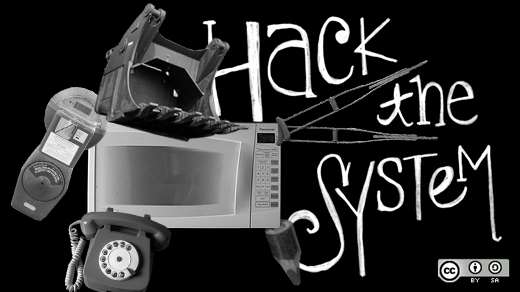At the end of this month, thousands of entrepreneurial citizens from across the United States and the world will come together to improve their communities and the governments that serve them as part of the National Day of Civic Hacking from May 31 - June 1, 2014.
What comes to mind when you think about civic hacking? For many, we associate the idea of hacking with people skimming personal information, breaking into websites, or revealing government secrets. However, we like to think of the term in a much more positive context—a civic hacker is someone who uses a minimum of resources and a maximum of brainpower and ingenuity to build, repair, or enhance something in their community. The civic hackers that participate in the National Day of Civic Hacking are technologists, civil servants, designers, entrepreneurs, engineers—anybody who is willing to collaborate with others as they address challenges relevant to our neighborhoods, our cities, our states, and our country.
Last year, a National Day of Civic Hacking organizer named Charlie shared this powerful story with us. He explained what a civic hacker does and the challenge of helping others see that civic hacking is a powerful thing.
"It was my father that helped with this problem. He is 92, active, and a veteran of WWII. He pointed out that he first heard the term hacker during the early days of WWII in the South Pacific. The U.S. Navy was not prepared for war and was getting beaten pretty badly. He was there. When fighter planes would return from action they would be shot up and in many cases crashed on landing because their pilots were injured. Each night huge teams of mechanics would converge upon the wrecked planes and hack at them, removing the good parts from several and building a new plane over night from all the salvaged pieces. He told me they were referred to as the hacker details. That was because they had to use metal hacksaws as they cut away the damaged panels of the planes. At 92 he seems to think that is the original root of the term because he said it was very commonly used during the war 60 years ago."
Another great example is from the launch of Apollo 13 in April 1970. It was going to be the third space mission to land on the moon. But on its way, nearly two hundred thousand miles from home and hours away from landing on the Moon, an explosion occurred on the spacecraft that changed history. Teams in Mission Control had to respond quickly to save the crew, and hopefully the mission. Apollo 13 was the world’s first galactic hackathon. Although some of the most brilliant minds in the country were working on these problems, with so many factors that could go wrong, many felt the crew would not be coming home. Some observers gave the crew a 1-in-10 chance of survival. The mission was not easy... but in a very short amount of time, and against all odds, collaborative teams of engineers, developers, and subject matter experts invented the technology to return the crew safely to earth.
The challenges we face are sometimes unique, and sometimes universal, but they are all interrelated, they all require innovation, and we can all be part of the solution. The National Day of Civic Hacking is a call to action for leaders in cities everywhere to unleash their can-do spirit by collaboratively harnessing publicly-released data and code to create all kinds of innovative solutions for problems that affect citizens everywhere. While civic hacking communities have long worked to improve our country and the world, the National Day of Civic Hacking provides an opportunity to unite around the shared mission of addressing and solving challenges relevant to our blocks, our neighborhoods, our cities, our country and ultimately, our world.
There are currently more than 110 unique events planned in more than 90 cities and 11 countries. Some of them are:
Columbus, Ohio: The Civic}{Hacks event will invite city residents to collaborate on local challenges around homelessness, poverty and failing schools and work with the city for implementation.
Harpswell, Maine: Local organizers will be opening a new citizen science focus include grassroots mapping of invasive aquatic species threatening the local ecosystem.
Arlington, Virginia: The National Science Foundation is partnering with Code for Northern VA to build solutions using NSF science research data.
Virginia Beach, Virginia: The local brigade Code for Hampton Roads is organizing a GIS-focused hackathon around coastal flooding and climate resilience.
Tacloban, Philippines: Community development organizers are putting together a [freespace] event to focus on culturally-driven redevelopment post-disaster and how news can be projected into areas of the community who aren't connected.
Washington, DC: The Sunlight Foundation is hosting Transparency Camp, an opengov unconference. Hundreds of people will gather to share their knowledge about how to use new technologies and policies to make our government really work for the people.
St. Louis, Missouri: Organizers are taking a citywide approach. Build4STL will include a hackathon, an Open Street Map editathon, multiple technology trainings in the community, launch of a new Code for America brigade and opening of a new Big Data Lab.
Melbourne, Australia: Random Hacks of Kindness (RHoK) Melbourne is joining the global community to hack for good.
Redding, California: Redding City Lab is "hacking the story and image of their city" through Wikipedia, gathering a group of locals to help tell a new narrative of the city's future.
Augusta, Georgia: Local organization HackAugusta is planning Super Happy Augusta, a festival celebrating technology, creativity and innovation. The party will include urban makerspaces, collaborative music, robotics and brew your own beer or root beer.
In 1816, Thomas Jefferson wrote about the type of government he envisioned—a government where "every man… feels that he is a participator in the government of affairs, not merely at an election one day in the year, but every day."
Our government was always intended to be collaborative. Whether or not it ever was participatory, it is not now. Participation in government is usually limited to showing up to vote on election day, sending a letter to your Congressman, expressing your concern by protesting, or accepting a government job. But now, thanks to technology, there are other ways make a difference and contribute your perspective and expertise. There are other places you can find answers than in your own employees. Technology has created opportunities and forums for collaboration so that everyone can be part of the solution.
We hope you’ll join us for the largest civic hacking collaboration in history. To learn more or join an event near you, check out hackforchange.org.
View the complete collection of stories for Open Government Week.








Comments are closed.